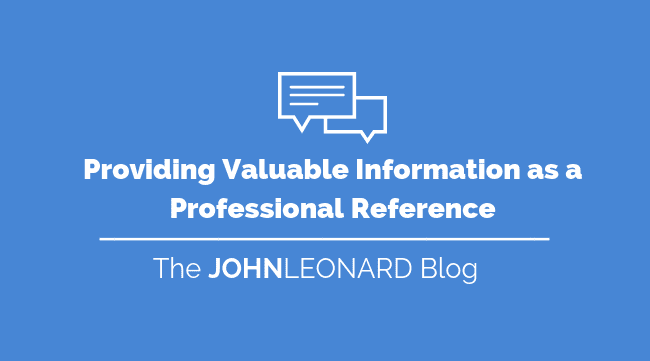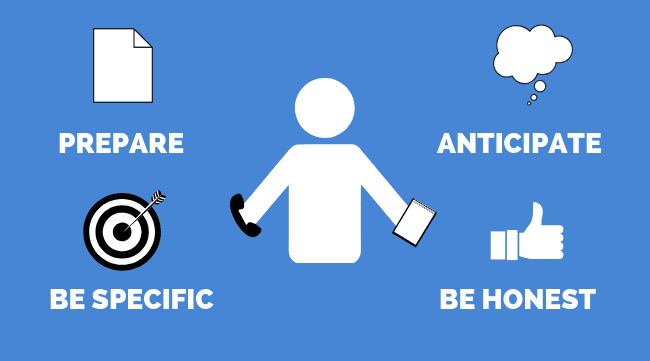A common part of the job search and hiring process often involves the use of references. References can provide valuable outside information that gives employers a deeper look into the prospective employee’s past experiences, personality, and also verification of other important information.
If you’re being asked to be a reference, ensure that you’re prepared for the call and stay focused on the questions being asked so, both the employer and candidate can move forward in the job search process. Your feedback has the ability to impact a candidate’s job search in either a positive or negative way. With that being said, we’re sharing pointers on how to best provide valuable information and serve as an informative professional reference.
Prepare
Take some time to think about what made this person good (or bad) at their job. Allotting a few minutes before the call to help brainstorm some specific examples and interactions you’ve had with this individual will ensure that you’re ready to discuss their qualities, especially if you haven’t worked with them for an extended period of time. If you are someone that likes to have notes, jot down a few ideas that you want to mention during the call.
Be aware of what the candidate has already told you about the position so, you can cater your reference to the specific company or industry they’re applying to. Emphasize relevant tasks they performed or any transferable skills you believed they gained. Ask the candidate for their up-to-date resume and a copy of the job posting they’re applying to for additional information and guidance.
Anticipate
Employers are looking for clarity and a greater insight into the candidate’s personality to see if they would be a good fit. In order to best provide this information, anticipate standard questions they may ask. Have the individual’s previous job title and dates of employment handy so, you can verify the exact time period and responsibilities accurately and quickly if asked. Expect to answer questions about the candidate’s attendance and punctuality as well as their strengths and weaknesses.
Be Specific
Try not to give one-word answers. Instead, elaborate on specific examples to back up your responses. Whether your comments are positive or negative, backing up your assertions with evidence will make your information more credible and beneficial. When giving a positive reference, use amiable, action words to effectively convey the candidate’s favorable qualities and strengths. Give as much background information and supportive facts as possible, while still answering the question.
Be Honest
Above all, be honest when answering. Don’t be afraid to say that you don’t remember or don’t have a specific example to give. If you don’t feel comfortable being a reference, it’s alright to say no when a candidate reaches out. Another common reason to turn down a reference is that you don’t know the candidate’s work ethic well enough. In this instance, it may be better to let the individual consider the nature of your reference and suggest another person who is more appropriate, like someone who supervised or directly collaborated with them.
If you agree to be someone’s professional reference keep in mind, in order to be as effective and informative as possible, you should put in a bit of your own time and effort preparing. Being honest and transparent play an important role in being a great reference and can make or break the individual’s chance at the job. Remember this individual chose you to be their reference, so consider how to best speak on their behalf.
Looking to stay up-to-date on the current hiring trends? Subscribe to the JOHNLEONARD blog and we’ll keep you informed of the updates you need to know!


